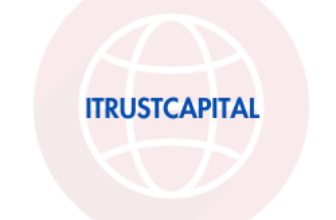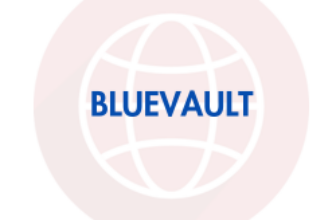SmartLab has been identified as a risky opportunity by Intelligence Commissioner users. It is similar to LumiVitae. We’ve received over 7 complaints against SmartLab.
The privately registered domain “smartlab.international” on August 8, 2023, is further hiding SmartLab’s founder, “Alex Wu,” and its existence. SmartLab claims a basis in Vietnam, while its presence in Malta and Seychelles is unclear. SmartLab is headquartered in Ho Chi Minh City but originated in Malta before Seychelles incorporation, raising questions. In February 2024, Australia (57%) and Norway (43%) reported substantial traffic, suggesting a global audience. Instead of selling things, SmartLab promotes affiliate memberships, raising transparency and legal concerns.
Get Your Money Back From These Scammers!
[mychargeback-form]
The name of SmartLab’s alleged founder, “Alex Wu,” is unknown, and there is insufficient proof to confirm his or her existence. Furthermore, on August 8th, 2023, the website domain, “smartlab.international,” was secretly registered, adding to the organization’s obscurity.
SmartLab’s reported location in Vietnam is called into question, as are its real presences in Malta and the Seychelles. Despite claims of being situated in Vietnam, SmartLab’s roots may be traced back to Malta before being registered in the Seychelles, a state known for facilitating shell firms.
Analysis of website traffic in February 2024 showed large visits from Australia (57%) and Norway (43%), indicating a potentially global audience. Notably, SmartLab does not sell retail products and instead promotes affiliate memberships, raising questions about its transparency and operational legality.

The lack of regulation or the presence of poor regulation is a huge red flag. It means SmartLab is a scam and most likely, an illegal operation.
Companies offering investment services or opportunities without having a license can vanish without leaving a trace. Furthermore, the lack of a regulatory license allows them to get away with it and face no legal consequences.
That’s why it’s vital for you to always check a company’s regulation status as well as its license information. The presence of a license allows consumers to reach out to an authority if something goes wrong.
In the case of SmartLab, victims have nowhere to go due to the absence of a watchdog or license.
You should ask yourself the following questions when you come across a new investment firm or opportunity:
- Does the investment provider maintain transparency about its CEO?
- Do they have a license from a renowned regulatory authority?
- If the need arises, can I reach out to an authority to report this company as a scam?
The compensation plan of SmartLab is primarily dependent on affiliate investments and offers returns based on various investment tiers.

Investment Structure Investors can choose to invest in USDT equivalents at different investment tiers, and the promised returns will vary accordingly.
Concerns have been raised about the sustainability and legality of the MLM side of SmartLab, as it primarily pays commissions based on the recruitment of affiliate investors.
Achieving different ranks within the compensation plan is possible for SmartLab affiliates. The qualification criteria for these ranks are connected to the investment amounts and recruitment numbers.
SmartLab provides referral commissions and residual commissions that are determined by the recruitment of affiliates and the levels of investment.
Referral Commissions Affiliates can earn referral commissions by bringing in new affiliates who make investments. The commission rates are determined by the tier of the affiliate.
Commissions are paid across eighteen levels based on affiliate investment levels, which encourages recruitment and investment.
Commissions for residual matrix are distributed using a 3×18 matrix structure, where the commission rates differ depending on the level of the matrix and the tier of the affiliate.
SmartLab provides extra incentives such as the Manager Bonus and Rank Achievement Bonus, which encourage recruitment and investment.
However, it’s worth noting that many scammers disable their payment channels before shutting down their operations.
They might give you multiple reasons including:
- A technical error
- A glitch in their system
- Banking issues
- A “hacking attack”
And many others.
But in 9/10 cases, the scammers actually stop making payments and keep the money to themselves. Hence, the payment methods we discussed here might not work.
If you want to get your money back from a scammer, you’d need to file a chargeback.
When it comes to scammers, you should only measure the quality of their customer service if they respond to your complaint.
In the beginning, scammers tend to remain very accessible.
This means their representatives will keep calling you until you invest with them. Furthermore, they will act friendly and make it seem as if you’re one of their most valuable consumers.
However, they do all this just to win your trust.
Scammers understand that in order to convince someone to give them a large sum, they will need to seem like a friend.
Nevertheless, when you have invested a considerable amount of money and need to get it back, their customer support will become inaccessible.
All of a sudden, their numbers would either stop responding or become unavailable.
Still, they might remain accessible to convince you to invest further. Also, they might begin by making a few excuses regarding your payment.
However, in the end, the customer support won’t resolve your issues and become increasingly unavailable.
If you have information on a scam or criminal operation, you can get access to 40+ investigative journalists & news outlets for free. Send us a detailed report here and if you qualify, we will forward your case ahead.
It’s worth noting that many scammers tend to purchase fake reviews. Buying fake reviews has become extremely easy and it’s a multi-million dollar industry.
Scammers like SmartLab tend to purchase fake reviews for their online profiles to make themselves seem more credible.
TIME Magazine investigated the fake review industry and estimated it to be worth more than $150 million. Certainly, there are a ton of scammers who want to seem legitimate and a bunch of fake reviews is the most effective way to do so.
That’s why you shouldn’t trust SmartLab reviews easily.
It’s easy to identify fake reviews as well. You should look out for 5-star reviews that are posted by temporary accounts (profiles which only posted 1 or 2 reviews on the platform). Also, you should see if the positive reviews share any detailed information about their experience with the firm or not.
In the case of SmartLab, chances are, you wouldn’t find many legitimate reviews.
Another prominent way scammers like SmartLab enhance their credibility is by burying negative reviews and complaints under a lot of fake reviews.
This way, when you’ll look up “SmartLab reviews”, you might not find many complaints. Or, you might find them buried within numerous reviews praising SmartLab.

You should always look out for consumer complaints. In the case of SmartLab, the most common complaints I found were about:
- Poor customer support
- Delays in payments
- High fees and charges
- Lack of transparency regarding their leadership team
- Aggressive sales staff
Do you have a similar complaint about SmartLab? You can share your complaint in the comment section or submit an anonymous tip.
There is a lack of verifiable evidence to support SmartLab’s claims of generating external revenue through an AI trading bot. There are concerns about the business model, as it heavily relies on new investments to sustain payouts, which some people compare to a Ponzi scheme.The absence of proof of external revenue generation, combined with the dependence on affiliate investments to provide returns, indicates a model resembling a Ponzi scheme.

If there is a slowdown in recruitment, SmartLab’s revenue stream could potentially dry up, which could eventually lead to the collapse of the company and financial losses for most participants.
Considering these observations, it would be wise to exercise caution before getting involved with SmartLab’s investment opportunities.
SmartLab is an unregulated entity. Although they might fall under the jurisdiction of a watchdog, they don’t have the license to offer financial services to consumers.
The lack of a license means they are not answerable to any regulatory authority. As a result, the people behind SmartLab can run away with your money without any prior notice. You should be extremely cautious when dealing with an unregulated service provider.
The absence of a watchdog also means you cannot report to them to anyone.
Also, due to the absence of specific regulations, there is no provision protecting you from the insolvency of this entity. If they go bankrupt, you won’t be able to do anything about it.
Can You Trust SmartLab?
All the evidence suggests that SmartLab is a scam. If you have lost money to them, there is still a chance you can get it back.
To recover your funds, you’d need to file a chargeback.

















 Intelligence Commissioner investigates & reviews online money-making opportunities. We strive to provide critically helpful information to our readers and assist them in identifying scams.
Intelligence Commissioner investigates & reviews online money-making opportunities. We strive to provide critically helpful information to our readers and assist them in identifying scams. 